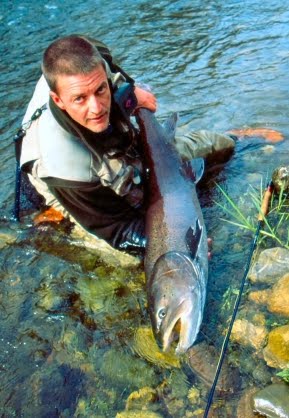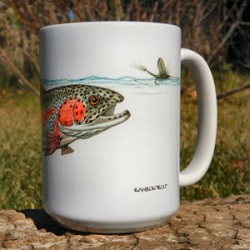![blog_april_22_2010_1[1] blog_april_22_2010_1[1]](https://www.jeffcurrier.com/wp-content/uploads/2010/05/blog_april_22_2010_15B15D_thumb5B25D.jpg) There is a major change in the weather today. I don’t mean rain, but rather cold temperatures. Cold for Egypt isn’t really that cold. It was probably in the low 60’s, but it was enough to wake me up shivering. I was sleeping with just a light blanket that was fine the first two nights, but at about 2 am I had to dig out my sleeping bag that I luckily always travel with. Out of all the nights I’ve spent camping on Lake Nasser over the years last night was definitely the coldest. Then there was the wind. At 5 am we had a steady 20 mph wind blowing from the northeast. You know if it’s blowing that hard at 5 am you’re in for a rough day.
There is a major change in the weather today. I don’t mean rain, but rather cold temperatures. Cold for Egypt isn’t really that cold. It was probably in the low 60’s, but it was enough to wake me up shivering. I was sleeping with just a light blanket that was fine the first two nights, but at about 2 am I had to dig out my sleeping bag that I luckily always travel with. Out of all the nights I’ve spent camping on Lake Nasser over the years last night was definitely the coldest. Then there was the wind. At 5 am we had a steady 20 mph wind blowing from the northeast. You know if it’s blowing that hard at 5 am you’re in for a rough day.
After breakfast in my fleece, we broke camp and began fishing our way deeper into the east arm of Lake Nasser. Although the skies were clear and the sun grew stronger, so did the wind. The waves grew huge fast and you knew Lake Nasser had the potential to turn into an ocean. Suka took us directly to a cliff facing straight into the wind to try and fish. It was good looking perch habitat but we all knew it was going to be extremely difficult to cast huge heavy flies directly into the gale and crashing waves.
![blog_april_22_2010_2[1] blog_april_22_2010_2[1]](https://www.jeffcurrier.com/wp-content/uploads/2010/05/blog_april_22_2010_25B15D_thumb5B25D.jpg) Tough conditions or not, we were going to put in our best effort. Mikey wisely chose to run the camera and watch Warpath and I fish. I worked my way along with one of Warpaths huge jig-like flies. His jig flies are gorgeous and the weight they carry is exactly what you need when dredging for fish. Warpath fished behind me with a small red and white Clouser Minnow for tigerfish.
Tough conditions or not, we were going to put in our best effort. Mikey wisely chose to run the camera and watch Warpath and I fish. I worked my way along with one of Warpaths huge jig-like flies. His jig flies are gorgeous and the weight they carry is exactly what you need when dredging for fish. Warpath fished behind me with a small red and white Clouser Minnow for tigerfish.
The waves were breaking on the rocks so hard that you could hardly see the rock ledges that you were trying to present your fly to. Plenty of debris had blown to this side of the lake and the clarity of the water from edge to ten feet out was murky. Nonetheless, I prowled my way along while getting splashed from the rogue waves. Even though the temperature was probably in the 70’s now, I was freezing. To my delight I landed a small Nile within five minutes and I got the feeling fishing would be good. But it was all downhill from there.
![blog_april_22_2010_3[2] blog_april_22_2010_3[2]](https://www.jeffcurrier.com/wp-content/uploads/2010/05/blog_april_22_2010_35B25D_thumb5B25D.jpg) First of all, with the lack of water clarity I continuously got snagged in the rocks. The last thing you want to do is bust flies off. Nile Perch leaders are like tarpon leaders in that you typically use 20lb class tippet with 60lb mono shock tippet. The 20lb RIO class tippet that I use is so strong that if there is a weak spot in your fly line or weak link anywhere, it may break there rather than in your class tippet. Sure enough, I broke off a chunk of the head of my fly line. It obviously got roughed up by the rocks previously and when I pulled to free my fly the fly line broke. Such a re-rigging process is a major hassle. I knew it might happen again so rather then go back to the boat for another fly line, I simply perfection looped what was left of the end of my fly line then made and attached a new leader and continued on with the now poor casting rig. To avoid a reoccurrence, on my next few snags, I braved the crashing waves and cold by swimming for my fly. Lake Nasser has some huge crocodiles and let me tell you, you do think about getting eaten while you’re pulling your fly loose from the depths!
First of all, with the lack of water clarity I continuously got snagged in the rocks. The last thing you want to do is bust flies off. Nile Perch leaders are like tarpon leaders in that you typically use 20lb class tippet with 60lb mono shock tippet. The 20lb RIO class tippet that I use is so strong that if there is a weak spot in your fly line or weak link anywhere, it may break there rather than in your class tippet. Sure enough, I broke off a chunk of the head of my fly line. It obviously got roughed up by the rocks previously and when I pulled to free my fly the fly line broke. Such a re-rigging process is a major hassle. I knew it might happen again so rather then go back to the boat for another fly line, I simply perfection looped what was left of the end of my fly line then made and attached a new leader and continued on with the now poor casting rig. To avoid a reoccurrence, on my next few snags, I braved the crashing waves and cold by swimming for my fly. Lake Nasser has some huge crocodiles and let me tell you, you do think about getting eaten while you’re pulling your fly loose from the depths!
That first session was not fun. Luckily as we got further into the morning not only did it continue to warm up, but the wind began to subside. We eventually hit a steep cliff area that I knew from my past trips had to house some fish. When I say steep I mean steep. These particular cliffs were so rugged that we literally had to cast from twenty to thirty feet above and just dangle our flies along the rocks below. One slip and you would bounce your way off jagged rock outcrops down to the water. I guarantee you’d be a bloody mess, and depending on how banged up you were from the fall would determine whether or not you could tread water long enough for Suka to come retrieve you with the boat. There was little chance you’d climb out on your own. This is extreme fly fishing at its best.
![blog_april_22_2010_4[2] blog_april_22_2010_4[2]](https://www.jeffcurrier.com/wp-content/uploads/2010/05/blog_april_22_2010_45B25D_thumb5B25D.jpg) Mikey was done watching us struggle to catch fish for his film so he put down the camera and broke out his rod. Mikey tied on a massive heavy fly of his own concoction and rather than cast it out there he methodically jigged it in the rock crevasses below. I can’t explain how intense this is. All three of us are good on our feet but honestly, if a 100lb fish shoots out of the rocks to your fly, you’re gonna be startled. And if you make a quick and hasty move with your feet, your life could be over. Enough of that kind of thinking because the truth is that when you’re actually doing it, falling is the last thing that crosses your mind.
Mikey was done watching us struggle to catch fish for his film so he put down the camera and broke out his rod. Mikey tied on a massive heavy fly of his own concoction and rather than cast it out there he methodically jigged it in the rock crevasses below. I can’t explain how intense this is. All three of us are good on our feet but honestly, if a 100lb fish shoots out of the rocks to your fly, you’re gonna be startled. And if you make a quick and hasty move with your feet, your life could be over. Enough of that kind of thinking because the truth is that when you’re actually doing it, falling is the last thing that crosses your mind.
As the three of us worked the water thoroughly, Mikey had some action. If it wasn’t for rocks bouncing down the hill next to me I wouldn’t have been alert to hear Mikey hollering. But as Suka left his perch where he could see Mikey hook up, he kicked loose several rocks that nearly clipped my head off. I reeled in and scurried along the cliff to find Mikey. As his hollers grew louder I knew I was close. Fortunately they weren’t yells of distress, but rather that he was hooked into something good. At last I made it to him just in time to see him hoist in his first Nile. It was worth the trip because this was a dandy – the first double digit fish of the trip. Mikey was fortunate, he was in a rare spot that he could climb down to waters edge and he proudly posed for some photos.
![blog_april_22_2010_5[1] blog_april_22_2010_5[1]](https://www.jeffcurrier.com/wp-content/uploads/2010/05/blog_april_22_2010_55B15D_thumb5B25D.jpg) Spirits were lifted and the three of us fished until lunch with incredible confidence. But other than a couple more small perch fishing was slow. After lunch we fished our way further into the east arm, but got completely skunked the entire afternoon. Worse than the lack of fish, there were new concerns. We were entering a heavily netted area. The local fishermen were netting everywhere. Technically, commercial fishing season is closed in April, but we were so far from civilization that evidently there is no enforcement.
Spirits were lifted and the three of us fished until lunch with incredible confidence. But other than a couple more small perch fishing was slow. After lunch we fished our way further into the east arm, but got completely skunked the entire afternoon. Worse than the lack of fish, there were new concerns. We were entering a heavily netted area. The local fishermen were netting everywhere. Technically, commercial fishing season is closed in April, but we were so far from civilization that evidently there is no enforcement.
At dinner, the South Africans shared their experiences of the day. Sure enough, like ours, their fishing quality had decreased the further east they went traveled. And they too saw a horrific number of nets. Were we heading deep into a part of the lake that was nearly fished out? We had to make a decision by morning as whether or not to continue to this remote region or turn back to the main lake.














0 Comments